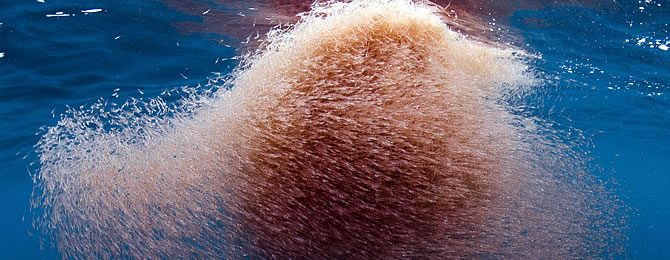Aker BioMarine’s Director of Scientific Writing contributes a chapter on krill
First published in International Aquafeed, March-April 2015
Diet and Nutrition in Dementia and Cognitive Decline, a new book published by Elsevier under the Academic Press imprint and written by Colin Martin and Victor Preedy, outlines for researchers and clinicians the complex relationships between cognitive decline, dementia and diet.
In addition to clinical applications and preclinical studies, various chapters explore the evidence of how nutritional components (either in the diet or supplements) can either hinder the development to, or progression from, the onset of dementia.
Lena Burri, PhD, Director of Scientific Writing at Aker BioMarine Antarctic AS and a well-respected researcher and scientific writer specialising in omega-3 phospholipids, has written a chapter on krill and its positive effects on brain health.
“It was an honour to write the chapter on krill for this book,” said Ms Burri.
“As omega-3 fatty acids are crucial nutrients for brain health, krill has an important role to play here.”
Omega-3s are vital to brain development, as well as health and maintenance throughout the lifecycle. In particular, phospholipid omega-3s from krill are crucial for proper structure and function of brain cell membranes and cell signaling. This is why the brain prefers omega-3s in phospholipid form.
The omega-3 fatty acid DHA (docosahexaenoic acid) is the most common fatty acid in the human brain. Supplying the brain with an ample amount of DHA can support memory and may reduce the risk of many diseases such as Alzheimer’s.
“Omega-3s are very well established for heart health and their role in brain health is considered by some experts as equally important,” said Nils Hoem, Chief Scientist, Aker BioMarine Antarctic AS.
“Krill, especially its phospholipid omega-3s, play key roles in supporting the integrity of brain cell membranes.”
Read the magazine HERE.
First published in International Aquafeed, March-April 2015
Diet and Nutrition in Dementia and Cognitive Decline, a new book published by Elsevier under the Academic Press imprint and written by Colin Martin and Victor Preedy, outlines for researchers and clinicians the complex relationships between cognitive decline, dementia and diet.
In addition to clinical applications and preclinical studies, various chapters explore the evidence of how nutritional components (either in the diet or supplements) can either hinder the development to, or progression from, the onset of dementia.
 |
| Of course they're good for your brain - They're such good multipliers |
“It was an honour to write the chapter on krill for this book,” said Ms Burri.
“As omega-3 fatty acids are crucial nutrients for brain health, krill has an important role to play here.”
Omega-3s are vital to brain development, as well as health and maintenance throughout the lifecycle. In particular, phospholipid omega-3s from krill are crucial for proper structure and function of brain cell membranes and cell signaling. This is why the brain prefers omega-3s in phospholipid form.
The omega-3 fatty acid DHA (docosahexaenoic acid) is the most common fatty acid in the human brain. Supplying the brain with an ample amount of DHA can support memory and may reduce the risk of many diseases such as Alzheimer’s.
“Omega-3s are very well established for heart health and their role in brain health is considered by some experts as equally important,” said Nils Hoem, Chief Scientist, Aker BioMarine Antarctic AS.
“Krill, especially its phospholipid omega-3s, play key roles in supporting the integrity of brain cell membranes.”
Read the magazine HERE.
The Aquaculturists
This blog is maintained by The Aquaculturists staff and is supported by the
magazine International Aquafeed which is published by Perendale Publishers Ltd
For additional daily news from aquaculture around the world: aquaculture-news

No comments:
Post a Comment